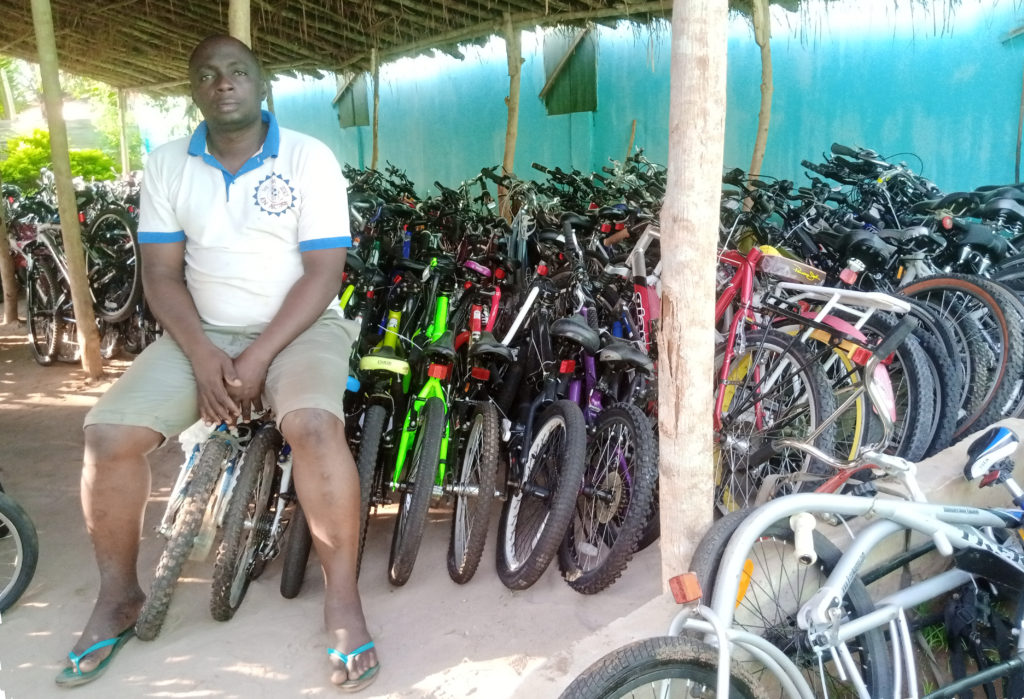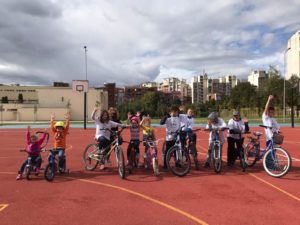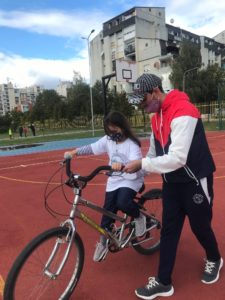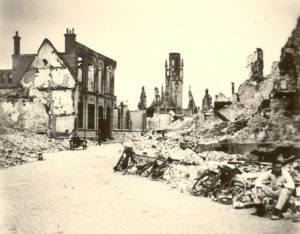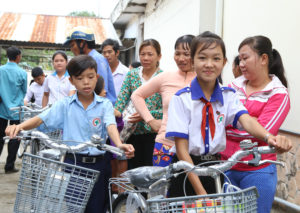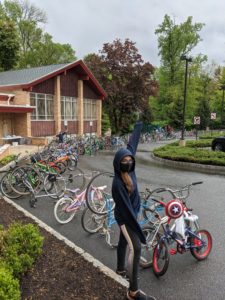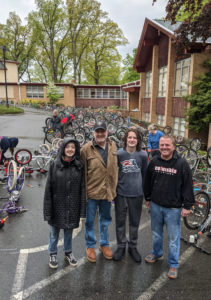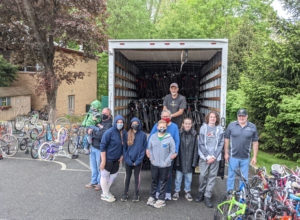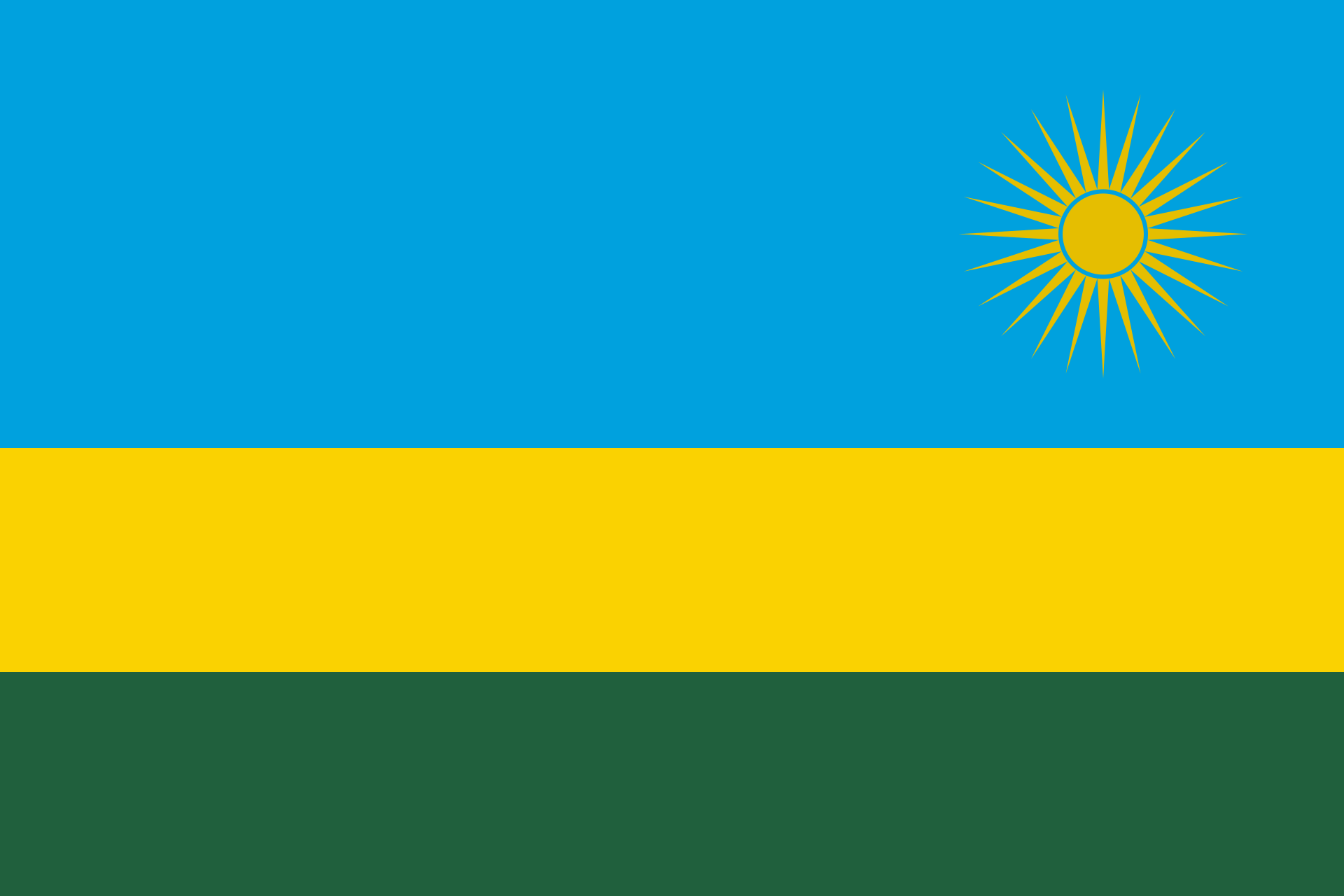By Alan Schultz
Summer 2021 Newsletter
Pedals for Progress has received reports from The Norbert and Friends Missions, our partner in Tanzania. Their second container arrived on February 2, 2020, and was slightly delayed due to unexpected costs and delays with the Tanzania Revenue Authority. The container finally made its long-awaited arrival at the NFM headquarters and was immediately unloaded.
The Norbert and Friends Missions experience high demand for P4P bikes and sewing machines due to their reputation for quality. Word is being spread about the benefits of bikes and sewing machines. Norbert and Friends Missions are determined, and are showing, that they can continue to create a continuous, autonomous, and independent revolving fund. This has always been the primary goal when setting up new relationships with partners overseas and the Norbert and Friends Missions have successfully laid the foundation to do so. It is up to us on the domestic front to continue supplying their great demand. It has been a true inspiration to see the strides they are making.
The bicycles provided by P4P have garnered fame as they are reliable tools used by the community’s healthcare workers and farmers. Norbert and Friends Missions are reporting that farmers are increasing their production, as they can haul more product over greater distances. Healthcare is more accessible to community members, and on the inverse healthcare workers can access the community easier. School children are also making noticeable changes in attendance and their grades as they can get to school faster, and as a result, are less tired, allowing them to better focus on their schoolwork.
The Norbert and Friends Missions tell us the sewing machines and bicycles are also greatly impacting the lives of women and girls in their community. The bicycles are allowing women and girls to have reliable transportation that is safer for them than walking. Women and girls face disproportionate challenges getting transportation. However, bicycles provided by The Norbert and Friends Missions have been evening out this inequality. The sewing machines being provided also give women opportunities to create their own small business. The women doing so have been a great source of inspiration for younger generations. The women who are proving to be successful are also very motivated to pass on their skills by teaching younger generations and holding classes for the inexperienced. The sewing machines provide a regular income for people that have had no source whatsoever.
Please read these personal testimonials from The Norbert and Friends Missions. It is amazing to hear how motivated the organization is in changing their community. They wish to continue the spread of their work and have hopes of reaching every corner of their country to distribute the much-needed aid our bicycles and sewing machines provide. They certainly have this within their capacity, and we are very excited to continue to work with them to make this goal a reality.
Success Stories from Tanzania
Here are some stories from the community of The Norbert and Friends Missions, our partner in Tanzania. Norbert and Friends are located in Arusha, in northern Tanzania, not far from Mount Kilimanjaro. A couple of these stories are from the nearby Hai District.
Nzega and the P4P/SP Women’s Group
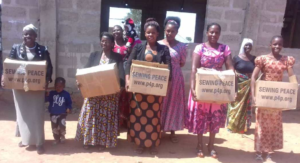 I take this opportunity to express my sincere gratitude for getting this sewing machine. Before I got it I couldn’t even buy my own clothes, but after getting this sewing machine I can now afford my own house. I have hired people to help me sell the clothes I make. Life has become easier. Now I wish to start a small college to teach my fellow girls to build their economy. Thank you very much P4P through The Norbert and Friends Missions.
I take this opportunity to express my sincere gratitude for getting this sewing machine. Before I got it I couldn’t even buy my own clothes, but after getting this sewing machine I can now afford my own house. I have hired people to help me sell the clothes I make. Life has become easier. Now I wish to start a small college to teach my fellow girls to build their economy. Thank you very much P4P through The Norbert and Friends Missions.
Our group would like to take this opportunity to express our sincere gratitude to The Norbert and Friends Missions. Now we are meeting in unity but lacking resources; we are praying for our donors to help us with more sewing machines.
Mariam Arbetus
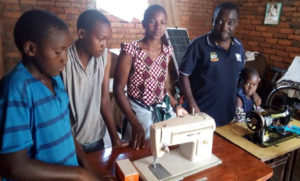 This family thanks the Organization for providing us with a sewing machine. We have now been able to talk about another sewing machine. We hope that my children also learn this skill as they have seen great benefits. Since we received the sewing machine it has opened the doors for my business, as I henceforth will look more professional. The Norbert and Friends Missions are the Hope for the hopeless, the Peace Makers and friends to the poor. May God help them continue reaching the unreached, and helping the left for themselves. God bless you very much.
This family thanks the Organization for providing us with a sewing machine. We have now been able to talk about another sewing machine. We hope that my children also learn this skill as they have seen great benefits. Since we received the sewing machine it has opened the doors for my business, as I henceforth will look more professional. The Norbert and Friends Missions are the Hope for the hopeless, the Peace Makers and friends to the poor. May God help them continue reaching the unreached, and helping the left for themselves. God bless you very much.
Sewing Peace Community Impact in Hai District
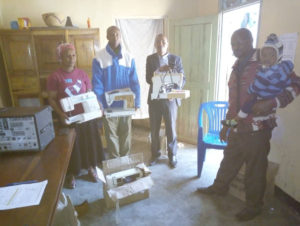 We don’t have good words to say because when we started this project we were two but now we have 12 of us. There is one who was wanting to run away from his family but after getting a sewing machine with this Group he found life has become much easier and he has managed a family services business and his children are now going to school. We just need to add a sewing machine. Thank you for helping us.
We don’t have good words to say because when we started this project we were two but now we have 12 of us. There is one who was wanting to run away from his family but after getting a sewing machine with this Group he found life has become much easier and he has managed a family services business and his children are now going to school. We just need to add a sewing machine. Thank you for helping us.
Manka
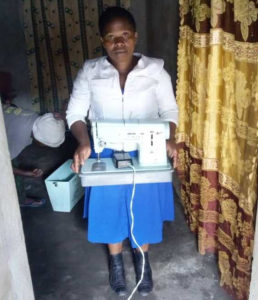 From the Hai District: Manka does not believe her eyes. “I was wondering how I could lead my life without any income.” Now she has seen so much benefit from managing her own sewing project and making her own money that she is thinking of opening a tailoring shop and hiring people who will help her manage her sewing business. “Many girls are suffering from poverty and lack of income even when they have professional skills. And yet many others would like to acquire tailoring skills but cannot afford it! I promise to reciprocate to the NFM by helping any women or girls who come my way for the sake of poverty alleviation. I know what it means living without income and how it hurts! May God Bless The Norbert and Friends Missions and their partners!”
From the Hai District: Manka does not believe her eyes. “I was wondering how I could lead my life without any income.” Now she has seen so much benefit from managing her own sewing project and making her own money that she is thinking of opening a tailoring shop and hiring people who will help her manage her sewing business. “Many girls are suffering from poverty and lack of income even when they have professional skills. And yet many others would like to acquire tailoring skills but cannot afford it! I promise to reciprocate to the NFM by helping any women or girls who come my way for the sake of poverty alleviation. I know what it means living without income and how it hurts! May God Bless The Norbert and Friends Missions and their partners!”
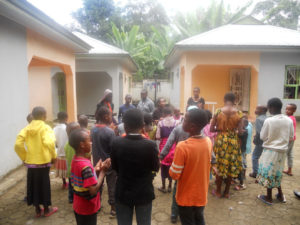 Demand for Bikes
Demand for Bikes
These you see here are students who have been in our office to ask for a bike after seeing their classmates with bikes do so well with attendance and exams. Students without bikes often walk a very long distance to school.
Coming Next Up
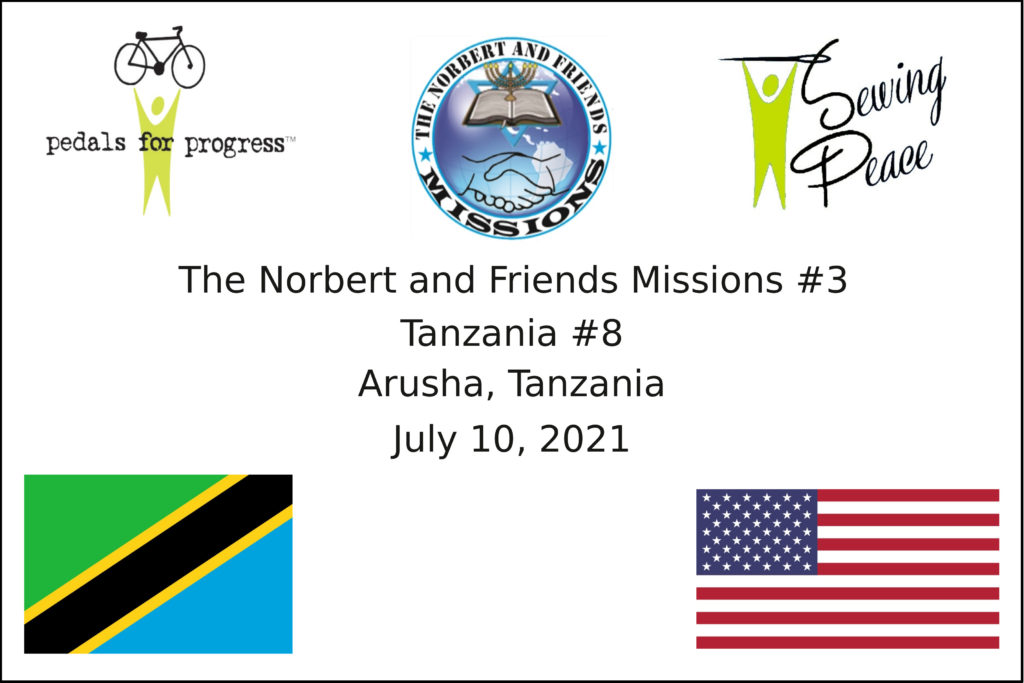
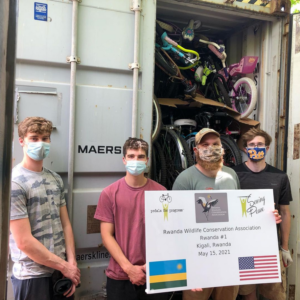 May 15: Rwanda #1
May 15: Rwanda #1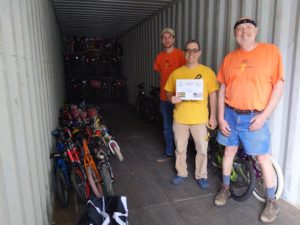 May 29: Togo #4
May 29: Togo #4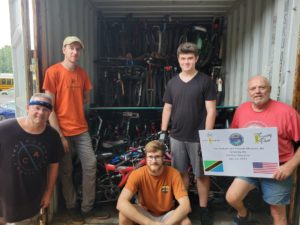 July 10: Tanzania #8
July 10: Tanzania #8
